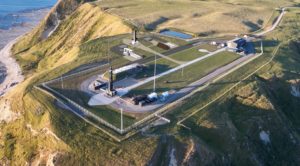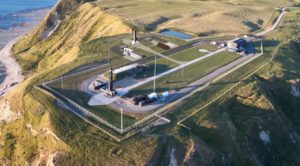WASHINGTON — Rocket Lab has gained contracts from the National Reconnaissance Office to get a set of Electron launches meant to demonstrate the responsive launch capabilities of the company.
Rocket Lab announced that it received the NRO contracts from the business’s Launch Complex to get a set of Electron missions 1 in New Zealand from the late spring of 2021. The sticks will occur from the launching pad there, called a second pad LC-1A, as well as , LC-1B, scheduled to be finished by the close of the year.
In a demonstration of its responsive launch capabilities, Rocket Lab explained in a statement announcing that the contract that the two launches will take place”within weeks” of each other. In a meeting, Rocket Lab Chief Executive Peter Beck stated he expects that the time between the two launches is significantly less compared to that.
“We’re looking forward to having two vehicles sitting two pads simultaneously, and we’ll see how close together we could actually get them to start,” he explained. “We’re planning internally to see how close we could get these two together.”
Conducting the back launches is meant to demonstrate the capability. “It is likely to become a substantial milestone for us and the NRO to demonstrate true reactive distance in action,” he explained. “When it comes to national security, there shouldn’t be any waiting room to enter orbit.”
The NRO used its Rapid Acquisition of a little Donating (RASR) contract car for its two sticks, and it also utilised to establish three payloads June 13 on the most recent Electron rocket. NRO also found a payload in January within the Electron launching.
While NRO was a significant client of overdue for Rocket Lab,” Beck stated the firm has great relationships with commercial clients and other U.S. government agencies, such as DARPA, NASA and the U.S. Air Force. “We love operating the NRO. They are a fantastic group of men. They are performing just an incredibly significant need for national security,” he explained.
With Rocket Lab is ramping up its launching activities in general as it contributes to regular operations. Its Electron launching is scheduled for July 3, which will carry seven commercial satellites. The main payload is the imaging satellite developed by Canon, using World flying 5 of its SuperDove imaging cubesats. The satellite is Faraday-1, a cubesat developed by British firm In-Space Missions made to carry a number of payloads that were hosted.
The turnaround involving displays of less than three weeks will be a record for Rocket Lab, if this launching date maintains. “The next launch after that will be an even shorter turn,” he explained. “We’ll be in a really fast pace from here through the remainder of the year.”
The Electron for this mission is in the launching site, having gone through a series of tests of the new pad. Beck did not give a date for this launching but stated it might come after the two planned to New Zealand.
Beck stated he believes the organization is currently well-positioned to take advantage of growing smallsat launch demand due to the fact that many competitors are sidelined by the outbreak. “Small launching around the world is mostly crippled due to COVID-19,” he explained. “We see us playing a really critical role in this time getting clients’ payloads to orbit while everybody else is managing the pandemic.”
Rocket Lab is still likely to attempt to regain an Electron first point around the enemy’s 17th launching, which Beck stated will be in November or even October. That is part of the effort that the firm announced a year ago to recover and reuse these first phases to allow it to maximize its launch rate to its production capacity without upgrades.
“I informed the group that we are likely to have a stage back in the mill by the end of the year, and yet, all going well, we will,” he explained. “Then the fun will really start.”
– Advertisement –


